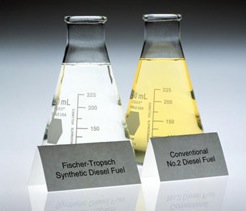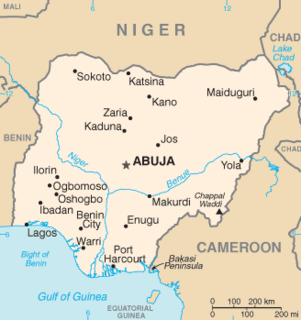
Madagascar is a large island in the Indian Ocean off the eastern coast of southern Africa, east of Mozambique. It has a total area of 587,040 square kilometres (226,660 sq mi) with 581,540 square kilometres (224,530 sq mi) of land and 5,500 square kilometres (2,100 sq mi) of water. Madagascar is the fourth largest island and the 2nd largest island country in the world. The highest point is Maromokotro, in the Tsaratanana Massif region in the north of the island, at 2,876 metres (9,436 ft). The capital Antananarivo is in the Central Highlands near the centre of the island. It has the 25th largest Exclusive Economic Zone of 1,225,259 km2 (473,075 sq mi). Madagascar is 400 kilometres east of mainland Africa.

The economy of Madagascar is a market economy and is supported by Madagascar's well-established agricultural industry and emerging tourism, textile and mining industries. Malagasy agriculture produces tropical staple crops such as rice and cassava, as well as cash crops such as vanilla and coffee. Madagascar's wealth of natural resources supports its sizable mining industry. Additionally, Madagascar's status as a developing nation exempts Malagasy exports from customs protocol in some areas, notably the United States and European Union. These exemptions have supported the growth of the Malagasy textile industry. Despite Madagascar's natural resources and developing industries, the 2009 Malagasy political crisis—considered by the international community to be an illegal coup—deterred foreign investments in Madagascar and caused the Malagasy economy to decline. Foreign investments have resumed following the resumption of elections in early 2014. At 2018, Madagascar is one of the world's fastest-growing economies.
Coal mining is the process of extracting coal from the ground. Coal is valued for its energy content and since the 1880s has been widely used to generate electricity. Steel and cement industries use coal as a fuel for extraction of iron from iron ore and for cement production. In the United Kingdom and South Africa, a coal mine and its structures are a colliery, a coal mine is called a 'pit', and the above-ground structures are a 'pit head'. In Australia, "colliery" generally refers to an underground coal mine.
Tailings are the materials left over after the process of separating the valuable fraction from the uneconomic fraction (gangue) of an ore. Tailings are distinct from overburden, which is the waste rock or other material that overlies an ore or mineral body and is displaced during mining without being processed.

Synthetic fuel or synfuel is a liquid fuel, or sometimes gaseous fuel, obtained from syngas, a mixture of carbon monoxide and hydrogen, in which the syngas was derived from gasification of solid feedstocks such as coal or biomass or by reforming of natural gas.
African environmental issues are caused by anthropogenic effects on the African natural environment and have major impacts on humans and nearly all forms of endemic life. Issues include desertification, problems with access to safe water supply, population explosion and fauna depletion. These issues are ultimately linked to over-population in Africa, as well as on a global scale. Nearly all of Africa's environmental problems are geographically variable and human induced, though not necessarily by Africans.
Sakamena is a village near Betroka in the region of Anosy in Madagascar.
Coal mining regions are significant resource extraction industries in many parts of the world. They provide a large amount of the fossil fuel energy in the world economy.

The Coal Authority is a non-departmental public body of the United Kingdom government sponsored by the Department for Business, Energy & Industrial Strategy. It owns the vast majority of unworked coal in Great Britain, as well as former coal mines, and undertakes a range of functions including:
Red Island Minerals Ltd (RIM) is a Perth Western Australia-based coal development company operating in Madagascar. The company is wholly owned by PTT Asia Pacific Mining Pty Ltd, a subsidiary of PTT Public Company Limited, a state-owned Thai company.

The history of coal mining in the United States goes back to the 1300s, when the Hopi Indians used coal. The first commercial use came in 1701, within the Manakin-Sabot area of Richmond, Virginia. Coal was the dominant power source in the United States in the late 1800s and early 1900s, and although in rapid decline it remains a significant source of energy in 2019.
Energy in Ethiopia is energy and electricity production, consumption, transport, exportation, and importation in Ethiopia.
Energy in Indonesia describes energy and electricity production, consumption, import and export in Indonesia. In 2009 Indonesia produced oil, coal, natural gas and palm oil, utilised also as energy raw material in 2010. Renewable energy potential in Indonesia is high: solar, wind, hydro and geothermal energy. Tropical rain forests and peat land areas have extensive coal storage. Indonesia is a geologically unstable country. According to IEA Indonesia was the 10th top natural gas producer in 2009: 76 billion cubics (bcm) 2.5% of world production of which 36 bcm was exported. In 2009 Indonesia was the 5th top coal producer: 263 million tonnes hard coal and 38 million tonnes brown. The majority of this, 230 Mt of hard coal, was exported. Indonesia has significant energy resources, starting with oil – it has 22 billion barrels of conventional oil and gas reserves, of which about 4 billion are recoverable. That's the equivalent of about 10 years of oil production and 50 years of gas. It has about 8 billion barrels of oil-equivalent of coal-based methane (CBM) resources. It has 28 billion tonnes of recoverable coal and has 28 gigawatts (GW) of geothermal potential.

Nigeria's primary energy consumption was about 108 Mtoe in 2011. Most of the energy comes from traditional biomass and waste, which account for 83% of total primary production. The rest is from fossil fuels (16%) and hydropower (1%).

The Waterberg Coalfield is an extensive deposit of coal in the Ellisras Basin in South Africa, lying mostly in the Waterberg District Municipality of the Limpopo province. Mining is increasing, both for export and for local power production, and industry in the region is expected to expand. This may have significant impact on the dry and fragile Limpopo basin ecosystems.

Hydraulic fracturing in South Africa is an energy production strategy in early stages of development using high-pressure drilling techniques to release natural gas trapped in shale rock. After initially imposing a moratorium on hydraulic fracturing in April 2011, the South African government lifted the moratorium in September 2012 after an initial investigation by an interdepartmental task team. Several energy companies were subsequently granted exploration licenses. Fracking in South Africa is a current topic of debate, with proponents pointing to substantial economic and energy benefits and opponents voicing concerns about potentially adverse environmental impacts.

The Nigerian energy supply crisis refers to the ongoing failure of the Nigerian power sector to provide adequate electricity supply to domestic households and industrial producers despite a rapidly growing economy, some of the world's largest deposits of coal, oil, and gas and the country's status as Africa's largest oil producer. Currently, only 40% of Nigeria's population is connected to the energy grid whilst power supply difficulties are experienced around 75% of the time. At best, average daily power supply is estimated at four hours, although several days can go by without any power at all. Neither power cuts nor restorations are announced, leading to calls for a load shedding schedule during the COVID-19 lockdowns to aid fair distribution and predictability.

The mining industry of Madagascar is on a small scale, centred mainly around remote locations with large mineral deposits. Mining potential is noted in industrial and metallic minerals, energy, precious and semi-precious stones, as well as ornamental stone. The mining sector was neglected by the government for decades prior to the mid 2000s. In 2013, the mining industry, a main source of foreign investment, was struggling due to "low metals prices and distrustful companies", attributed to a 2009 coup.

The mining industry of Malawi, includes a number of gemstones and other minerals.











